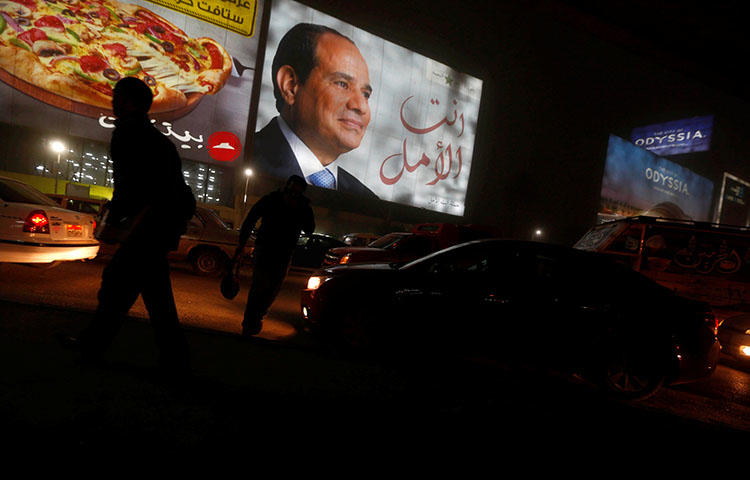New York, March 30, 2018–The Committee to Protect Journalists today condemned the actions taken by Egyptian authorities against media outlets and journalists reporting on the country’s presidential election, which took place March 26-28.
Authorities blocked news websites, threatened journalists with retaliatory actions if their reporting was “unethical,” and are reviewing at least one publication for reporting on alleged election irregularities, according to media reports.
“Egyptian authorities must stop intimidating and punishing journalists who have simply done their jobs,” said CPJ Middle East and North Africa Coordinator Sherif Mansour. “If the government truly conducted free and fair elections, then it should welcome the scrutiny of the press, rather than trying to intimidate reporters.”
CPJ’s requests for comment sent via email to Egyptian regulator the State Information Center (SIS) and the prosecutor general’s office were not immediately answered.
Attempts to silence reporting on Egypt’s presidential elections include:
- The head of Egypt’s State Information Center, Dia Rashwan, yesterday in a statement criticized foreign coverage — without naming outlets or journalists–for reporting low turnout in the re-election of President Abdel Fattah el-Sisi. Rashwan also said that the coverage was balanced overall, but that SIS would summon outlets if their reporting was “unethical.”
- The news website Al Manassa said in a statement that its website was blocked inside Egypt on Thursday evening after it published last week a critical report alleging election violations, government bias, and vote buying. CPJ was unable to determine how the website was blocked or if the website is now visible in Egypt. According to the statement, Al Manassa readers informed the staff that they were unable to access the website and sent screenshots of the block.
- The country’s media regulator, the High Council for Media said that it will discuss tomorrow complaints made by a pro-government lawyer, Samir Sabry, against the daily al-Masry al-Youm, and decide if the paper violated election law by downplaying el-Sisi’s opponents in the race and alleging that the government offered cash payments and made promises to fix infrastructure to increase voter turnout, according to news reports. Al-Masry al-Youm, which generally follows a pro-government editorial line, yesterday published a statement defending its reporting and renewing its support for el-Sisi.
- Sabry yesterday asked the prosecutor general to open a case against al-Masry al-Youm. The prosecutor general approved the request and referred the case to national security prosecutors, according to a tweet from the newspaper’s journalist Mohamed Said Abdel Hafiz and a former member of the Egyptian Journalists’ Syndicate Khaled al-Belshi who was quoted in the government-owned al-Ahram newspaper. CPJ was unable to determine if the case would go to trial.
This month, Egypt’s Supreme Council for Media Regulation–a body set up in 2016 under a decree by el-Sisi–banned several entertainment and satirical shows on moral grounds, CPJ documented at the time.
Since May 2017, Egyptian authorities have blocked at least 496 websites of news outlets, blogs, human rights organizations, and circumvention tools used to bypass the blocks, according to the AFTE and the U.S. based Open Observatory of Network Interference.
